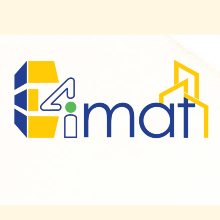Motivation
Today, the building sector is responsible for 40% of energy consumption and 36% of CO2 emissions in the EU. For this reason, the European Commission has set itself the goal of constructing near-zero energy buildings (nZEB) in the future. Innovative building materials, the "grey" energy used and the associated CO2 emissions are important key factors in order to be able to build more sustainably in Europe in the future, both in new and in existing buildings.
Concept
The Exploit4InnoMat project aims to provide a sustainable solution for the development, upscaling and validation of new material concepts across Europe. The goal is to establish an open European innovation network of testbeds and pilot lines (Open Innovation Testbeds - OITB) for building envelope materials that will facilitate the achievement of the EU's target for near-zero energy buildings (nZEB).
Tasks of University of Stuttgart
The Materials Testing Institute (MPA), the Institute for Lightweight Structures and Conceptual Design (ILEK) and the Institute of Microbiology (IMB) at the University of Stuttgart will operate pilot line No. 7, which will enable 3D printing via robotic spraying of concrete and develop a process for 3D printing of bio-concrete. The goal is to generate components with continuous material density gradients, or to save material and weight by using mineral hollow bodies as well as 3D shaping.
The second part of the pilot line is dedicated to the use of natural microbiological processes to consolidate aggregates into so-called bio-concrete. Bio-concrete represents a promising and potentially CO2-neutral alternative to cement-bound concrete. In bio-concrete, instead of cement, the aggregate is bound by calcium carbonate crystals precipitated by the activity of bacteria. The process is called microbiologically induced calcite precipitation (MICP).
Complementary to this, the Materials Testing Institute offers comprehensive testing and examination facilities to support the components produced in the pilot production for market approval (CE marking or project-related approval and project-related construction technique permit).
Facts about the project:
- 27 partners from 11 European countries
- Project start: January 2023
- Duration: 48 months
- Funding: € 11.3 million
More information: https://exploit4innomat.eu/
Kontakt

Jürgen Frick
Dr. rer. nat.Head of Department / Deputy Head of Unit





